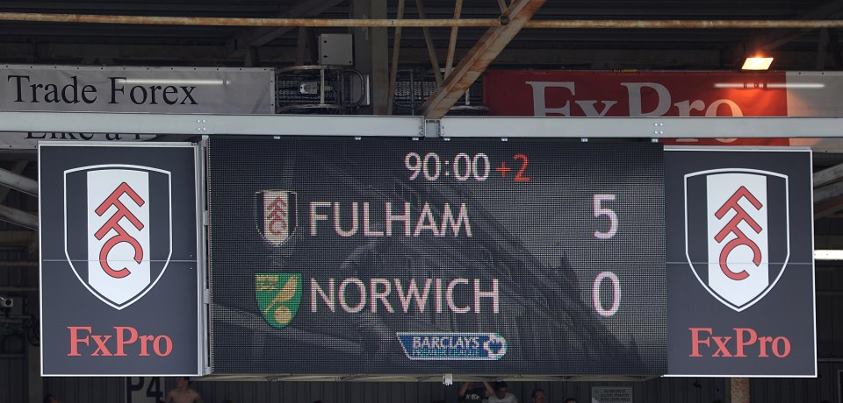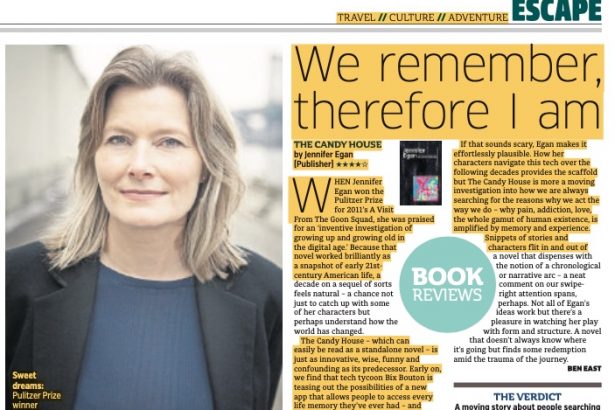Copy: Metro, summer 2012
My last post of a not very post-ful summer (sorry about that) mused on how £40 was far too much for Fulham Vs Norwich. It certainly was if you were a Norwich fan – it cost £8 per opposition goal. A week later, Norwich supporters goaded their QPR counterparts with ‘you couldn’t sell all your tickets’. No wonder, when they cost £45. Both away games so far this season ended up going to general sale – a state of affairs which was incredibly rare last year.
Coincidence? Probably not. But it doesn’t have to be this way. Manchester City will charge QPR fans £30 – not bad to see the Premier League Champions. And the argument that they can afford it thanks to deals with Etihad and the deep pockets of the club doesn’t really wash. Match day ticket revenue, as I’ve said before, is such a minor part of a Premier League club’s income, it doesn’t actually matter if the tickets are £5 or £10 less.
Anyway, this summer I’ve reviewed two books which have brought the business of football into sharp, if depressing, relief. They were for Metro, which once again means I have to post them myself as there’s no link online. First was David Conn’s Richer Than God: Manchester City, Modern Football And Growing Up. Conn is The Guardian’s ‘proper’ football journalist who has for a long time investigated the people who own our football clubs and the deals they make – and this book combines his personal love for Manchester City with the nagging realisation that his club and the game are businesses. The takeover by Sheikh Mansour troubles him – even though (as I found out too) the beliefs and intentions of the owners are generally sound. “A takeover by a sheikh, who inherited money too huge for a sane world, then poured it into City but only came to one match, was a hard thing for me to be thankful for,” he writes. Here’s the review
Richer Than God: Manchester City, Modern Football And Growing Up by David Conn (Quercus, £12.99)
Four stars
When Manchester City so memorably won their first Premier League title in injury time last May, it wasn’t just their fans who felt a huge sigh of relief. The sheer sporting drama overcame, for a few moments at least, the sense that, in spending more than £1bn in nearly four years since their takeover by Sheikh Mansour of Abu Dhabi, they had bought the league.
In truth, since the inception of the Premier League in 1992, most clubs have in effect bought the title in some way – and David Conn’s brilliant journalism has often brought to light the worrisome deals and self-seeking owners eager to cash in on the gravy-train promised by worldwide exposure. His book ties such concerns to a more emotional, engaging tale that many football fans of a certain age will recognise, in which he comes to understand that a club once followed like a religion is now a hard-nosed business like any other.
And yet, as Conn wonderfully observes – he grew up a Manchester City fan himself – there can still be moments like that giddy, near-perfect conclusion to a sporting season. It’s why this book, troubled only by a few repetitive conclusions, isn’t about or even necessarily favourable towards Manchester City or football itself. It’s about how, in allying itself so closely with the venal interests of a few wealthy moneymen, the unscripted dramas of English football may well become fewer and further between.
The one thing that keeps me hopeful about Norwich City is that it is still owned by fans of the club. I understand that years of financial mistakes have to be paid back, and paid back relatively soon. Generally, season tickets are good value at Carrow Road, although living 200 miles away, that doesn’t really help me. But staying in the Premier League under that ownership does afford the club the opportunity to do things better and not just charge, say, over £40, just because everyone else is.
Maybe – in fact definitely – the reason every single penny is relentlessly chased is because the great secret about the Premier League for nearly every promotion chasing Championship club is that it isn’t the gravy train it might appear to be. And so much of that is thanks to the wage-bill it takes to build a team capable of staying in the division. Which brings me onto The Secret Footballer – an anonymous insight into the life of a professional footballer in the Premier League, serialised every week in The Guardian. His first book is a must-read for any football fan; it makes the lives of these highly-paid stars completely ridiculous but at the same time understandable.
I Am The Secret Footballer by The Secret Footballer (Guardian Books, £12.99)
Four stars
Ever since The Secret Footballer first started writing his anonymous newspaper columns on what life was really like as a Premier League footballer, there has been a certain sport in trying to work out who he is. But the real success of this first book is that his insight into this venal, every-man for-himself world makes his actual identity a sideshow. In the week that the new season kicks off, it’s an eye-opening and often depressing look at the lionised “heroes” who play the game we purport to love.
Grouped together in sections on managers, agents, invective-laden fans (who come out of this just as badly – and post-OIympics, rightly so) and the bad behaviour beholden of young millionaires with too much money, it’s also a compelling tale of a man who fulfilled his childhood dreams, only to realise he didn’t much like it when they came true. In fact, the only criticism is that while the anecdotes about spending thousands on champagne in Los Angeles are luridly salacious, there are plenty of occasions in which TSF’s fascinating thoughts on tactics, teamwork and management are not fully realised. There is, actually, a bigger book to be written here – and you’d trust TSF to write it.
So there you have it. A lot of the time, the footballers themselves don’t like the Premier League either. As far as Norwich is concerned, perhaps that’s also why I’ve had a few misgivings about this season. It was easy to fall in love with a side dragging themselves up from League 1 and making the very best of themselves. You could identify with them, even if they still probably earned more in a month than we did in a year. The story had to come to an end, and it did so when Lambert left and Holt handed in a transfer request. Now, Bassong, Garrido and the rest are unknown quantities, players who obviously would prefer to play in the Premier League because of what it can offer, rather than because they love the thought of doing something for Norwich.
The very best part of The Secret Footballer is when he muses that, in a weird way, football is a solitary, singular, every-man-for-himself profession at Premier League level, rather than a team game. And yet we still hero-worship these multimillionaires. Sad, really.


